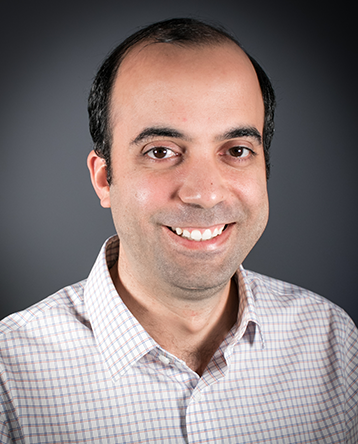Mario Bergés
Professor, Civil and Environmental Engineering
Courtesy Appointment, Electrical and Computer Engineering
Professor, Civil and Environmental Engineering
Courtesy Appointment, Electrical and Computer Engineering

Mario Bergés is a professor in the Department of Civil and Environmental Engineering at Carnegie Mellon University (CMU). He is interested in making our built environment more operationally efficient and robust through the use of information and communication technologies, so that it can better deal with future resource constraints and a changing environment. Currently his work largely focuses on developing approximate inference techniques to extract useful information from sensor data coming from civil infrastructure systems, with a particular focus on buildings and energy efficiency. Bergés is the faculty co-director of the Smart Infrastructure Institute at CMU, as well as the director of the Intelligent Infrastructure Research Lab (INFERLab). Among recent awards, he received the Professor of the Year Award by the ASCE Pittsburgh Chapter in 2018, Outstanding Early Career Researcher award from FIATECH in 2010, and the Dean’s Early Career Fellowship from CMU in 2015. Bergés received his B.Sc. in 2004 from the Instituto Tecnológico de Santo Domingo, in the Dominican Republic; and his M.Sc. and Ph.D. in Civil and Environmental Engineering in 2007 and 2010, respectively, both from Carnegie Mellon University.
2010 Ph.D., Civil and Environmental Engineering, Carnegie Mellon University
2007 MS, Civil and Environmental Engineering, Carnegie Mellon University
2005 Graduate Certificate, Construction Management, Instituto Tecnologico de Santo Domingo
2004 BS, Civil Engineering, Instituto Tecnologico de Santo Domingo
Wilton E. Scott Institute for Energy Innovation
Mario Bergés received seed funding to refine a model called Ibex-RL, an upgrade of a previous model that uses both machine learning and physics-based concepts to control heating, ventilation and air conditioning (HVAC) functions in buildings.
CMU Engineering
Carnegie Mellon University researchers are bringing passenger rail back to communities by revitalizing existing rail lines—and in doing so, decreasing costs from billions to millions.
Civil and Environmental Engineering
This year’s seed awards will help grow research in clean hydrogen production, AI hardware efficiency, and decarbonizing transportation.
Wilton E. Scott Institute for Energy Innovation
This year’s seed awards will help grow research in clean hydrogen production, AI hardware efficiency, and decarbonizing transportation.
Engineering and Public Policy
This year’s seed awards will help grow research in clean hydrogen production, AI hardware efficiency, and decarbonizing transportation.
CMU Engineering
CMU team develops frameworks for environmental control and life support systems that can sustain human life in deep space habitats.
CMU Engineering
Civil and environmental engineering faculty have developed a testbed to make AI-enabled digital twins more accessible in the curriculum, but it is also proving valuable in active infrastructure research.
Wall Street Journal
Mario Bergés talks to the Wall Street Journal about battery-powered home appliances.
Civil and Environmental Engineering
CEE hosts its inaugural Spring Industry Day with speakers and panels discussing how cutting-edge technologies are reshaping the future of our field.
Civil and Environmental Engineering
Steve Lobo (MS ’23) was a member of the utility engineering team involved in the design of Dubai’s freight rail network, Etihad Rail, before completing his master's degree with CEE. He now works with SmithGroup’s Pittsburgh office, where he’s part of the performance, analytics, and climate impact team (PACT).
Civil and Environmental Engineering
CEE Professor Mario Bergés becomes an Amazon Scholar, collaborating with the global business giant's Devices and Services Organization. With a focus on energy and sustainability solutions, Bergés will contribute his expertise in shaping Amazon's scientific roadmap while bridging the gap between academia and industry.
Civil and Environmental Engineering
PhD student Min Hwang is using digital twins to develop fault diagnosis and response systems for environmental control and life support systems (ECLSS) in space missions. Hwang's research for NASA looks to quickly identify and address faults, potentially saving lives during deep space exploration.